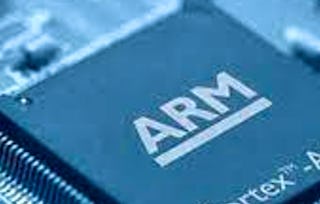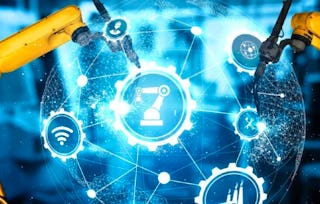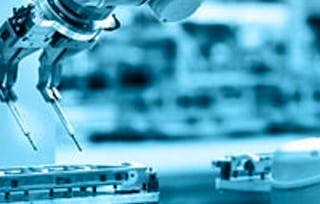This course equips participants with the knowledge and hands-on skills needed to design and implement ARM Processor with Micro python in Cyber-Physical Systems (CPS) for industrial and use. Covering foundational concepts and practical development with Micro python programming on ARM processors, participants will explore the Consumer Industry, Smart City Perspective of CPS, and gain expertise to design and control the evolving smart systems. Participants will gain insights of Raspberry Pi Pico, Thonny IDE and Installing Micro Python for Pico and delve deep into the exploration of embedded systems in CPS. This covers 16x2 LCD Display using I2C Protocol, Interfacing ADC with Pico and displaying in OLED, Simple Weather Monitoring System, Interfacing Bluetooth with Pico and various embedded control systems for washing machine, design of Coffee machine, Vacuum cleaner and more using embedded system. Refrigeration Appliances, Weigh-In-Motion, induction, microwave oven. Furthermore, they will intricate concepts of civil structures, importance of sensors in smart civil structures and various controlling devices and systems for smart civil structures, gain knowledge in Smart city structures includes smart waste management, detection of underground utilities, smart metering and wireless occupancy and surveillance.

CPS Design with ARM Core using MicroPython for Industries
Ends soon: Gain next-level skills with Coursera Plus for $199 (regularly $399). Save now.

CPS Design with ARM Core using MicroPython for Industries
This course is part of VLSI chip design with CPS for Industrial Applications Specialization

Instructor: Subject Matter Expert
Included with
Recommended experience
Skills you'll gain
- Maintenance, Repair, and Facility Services
- Continuous Monitoring
- Public Works
- System Monitoring
- Integrated Development Environments
- Control Systems
- Peripheral Devices
- Civil Engineering
- Energy and Utilities
- Communication Systems
- Automation
- Display Devices
- Internet Of Things
- Embedded Systems
- Real Time Data
- Environmental Monitoring
- Electronic Systems
- Embedded Software
- Structural Engineering
- Electronic Hardware
Details to know

Add to your LinkedIn profile
6 assignments
See how employees at top companies are mastering in-demand skills

Build your subject-matter expertise
- Learn new concepts from industry experts
- Gain a foundational understanding of a subject or tool
- Develop job-relevant skills with hands-on projects
- Earn a shareable career certificate

There are 6 modules in this course
This module offers a comprehensive journey into the world of embedded systems using Raspberry Pi Pico. This module aims to give participants a solid grasp of Raspberry Pi Pico, covering the basics and diving into practical programming with Thonny IDE software and Micro Python. Explore hands-on demonstrations, from controlling LEDs to connecting external components and creating responsive systems like traffic lights. The module wraps up with a deep dive into integrating PIR sensors, explaining their features, functions, and practical use in exciting embedded projects.
What's included
14 videos2 readings1 assignment
Immerse yourself in advanced peripheral interfacing with Raspberry Pi Pico. This module explores diverse components, from LCD displays, Analog to Digital Converters (ADCs), Ultrasonic Distance Sensors, to Bluetooth interfaces. Through hands-on programming in Micro Python using Thonny IDE, participants will gain practical insights into interfacing and controlling these peripherals, paving the way for sophisticated projects and applications.
What's included
13 videos1 assignment
Embark on a comprehensive exploration of advanced applications in embedded systems, unraveling the intricate roles and working principles of various devices. This module navigates through diverse topics, including the fundamental components of washing machines, smart vacuum cleaners, and smart speakers. Participants will delve into the significance of microcontrollers, motors, communication protocols, and automation advantages, extending the scope to specialized domains like coffee machines, smart homes, and smart petrol filling stations. The module offers a holistic view of the evolving landscape of embedded systems, emphasizing real-world applications and emerging technologies.
What's included
13 videos1 assignment
Embark on an exploration of advanced technologies embedded in modern home appliances. This module covers the basics of refrigeration cycles, providing a functional overview of refrigeration systems. Participants will delve into the working principles of BLDC motors and their application in smart refrigerators. The module then shifts focus to weigh-in-motion technology, detailing static and dynamic types and the crucial role of sensors. Further, it covers the essentials of induction cooktops, microwave ovens, and smartwatches. Participants will gain insights into the cyber-physical components of smart home automation, concluding with the practical application of building a home automation prototype.
What's included
11 videos1 assignment
This module delves into the pivotal role of smart civil structures in the contemporary era, emphasizing their importance and the fundamental components that define them. Participants will gain insights into the various systems employed for vibration control, self-repairing mechanisms, and energy harvesting in smart civil structures. The basics of sensors and sensory systems, along with the working principles of different sensors, will be explored. The module will also cover seismic response control in civil structures, highlighting the significance of sensors, actuators, and dampers during seismic activities. Participants will understand the broad classification of damping devices and systems, delve into structural health monitoring, and grasp the intricacies of data processing, signal pre-processing, and vibrational control. The concept of energy harvesting and power supply for smart civil structures will be explained, providing a comprehensive overview of different energy harvesting systems.
What's included
16 videos1 assignment
This module explores the integration of smart systems in various aspects of urban infrastructure, ranging from traffic control to waste management, underground utilities, predictive maintenance, parking systems, metering applications, and occupancy monitoring. Participants will gain a comprehensive understanding of the concepts, architectures, and technologies that underpin these smart systems. The module covers the design processes for Converged Intelligent Transportation System (ITS) Architecture, smart waste management, underground utilities detection, and predictive maintenance. Additionally, it delves into smart parking systems, including RFID technology, LoRaWAN sensors, and the broader concept of smart metering for gas and water applications. The module concludes with an exploration of real-time occupancy monitoring systems and their key features.
What's included
15 videos1 assignment
Earn a career certificate
Add this credential to your LinkedIn profile, resume, or CV. Share it on social media and in your performance review.
Instructor

Offered by
Explore more from Electrical Engineering
 Status: Free Trial
Status: Free Trial Status: Free Trial
Status: Free TrialL&T EduTech
 Status: Free Trial
Status: Free Trial Status: Free Trial
Status: Free Trial
Why people choose Coursera for their career




Frequently asked questions
To access the course materials, assignments and to earn a Certificate, you will need to purchase the Certificate experience when you enroll in a course. You can try a Free Trial instead, or apply for Financial Aid. The course may offer 'Full Course, No Certificate' instead. This option lets you see all course materials, submit required assessments, and get a final grade. This also means that you will not be able to purchase a Certificate experience.
When you enroll in the course, you get access to all of the courses in the Specialization, and you earn a certificate when you complete the work. Your electronic Certificate will be added to your Accomplishments page - from there, you can print your Certificate or add it to your LinkedIn profile.
Yes. In select learning programs, you can apply for financial aid or a scholarship if you can’t afford the enrollment fee. If fin aid or scholarship is available for your learning program selection, you’ll find a link to apply on the description page.
More questions
Financial aid available,





